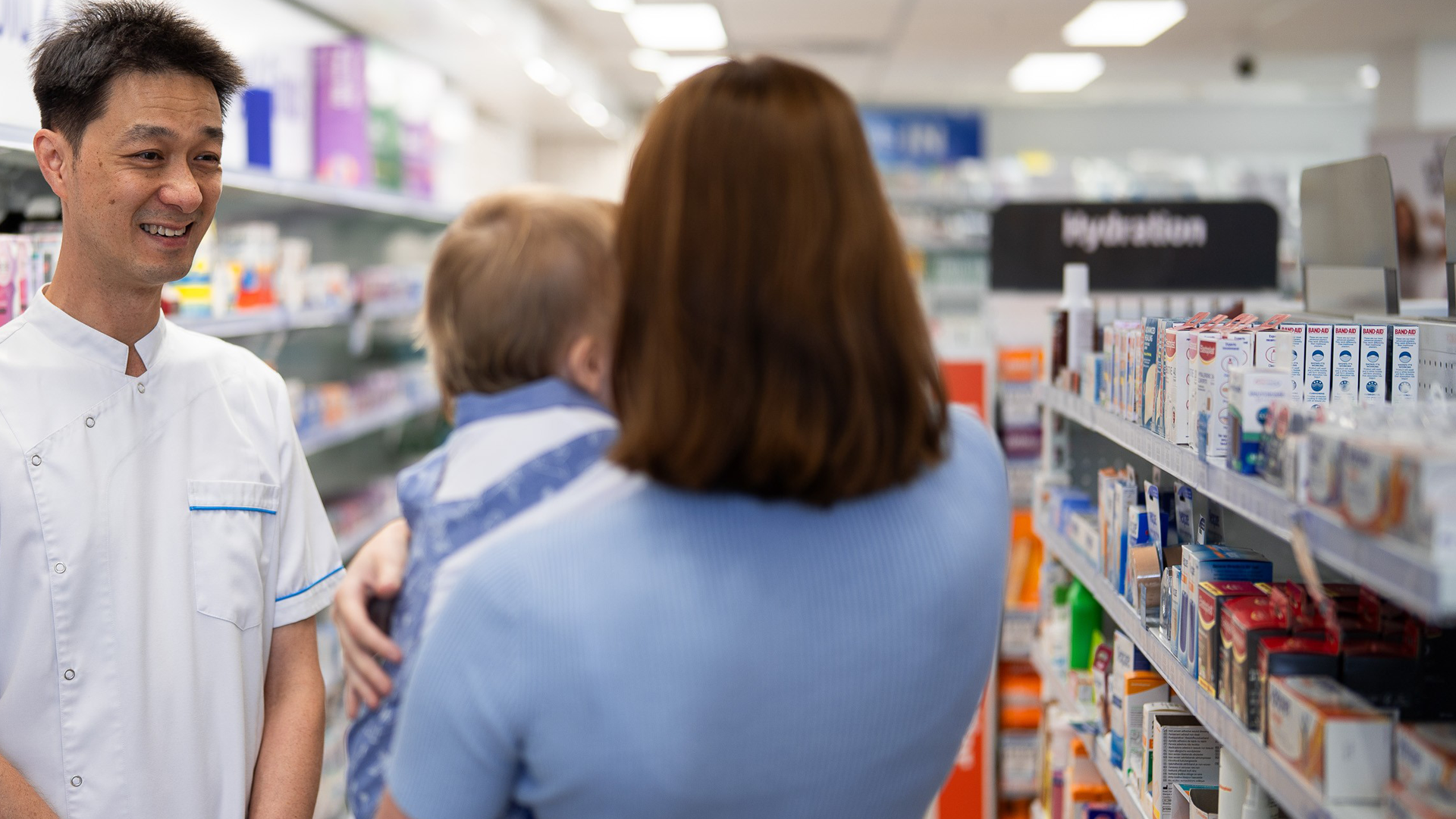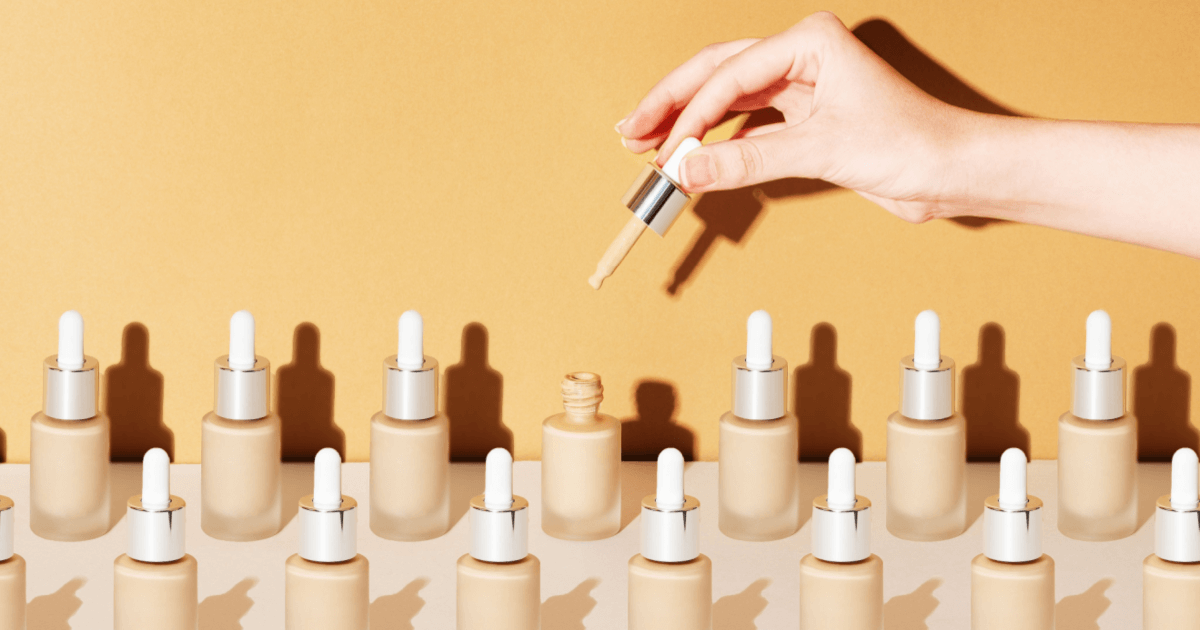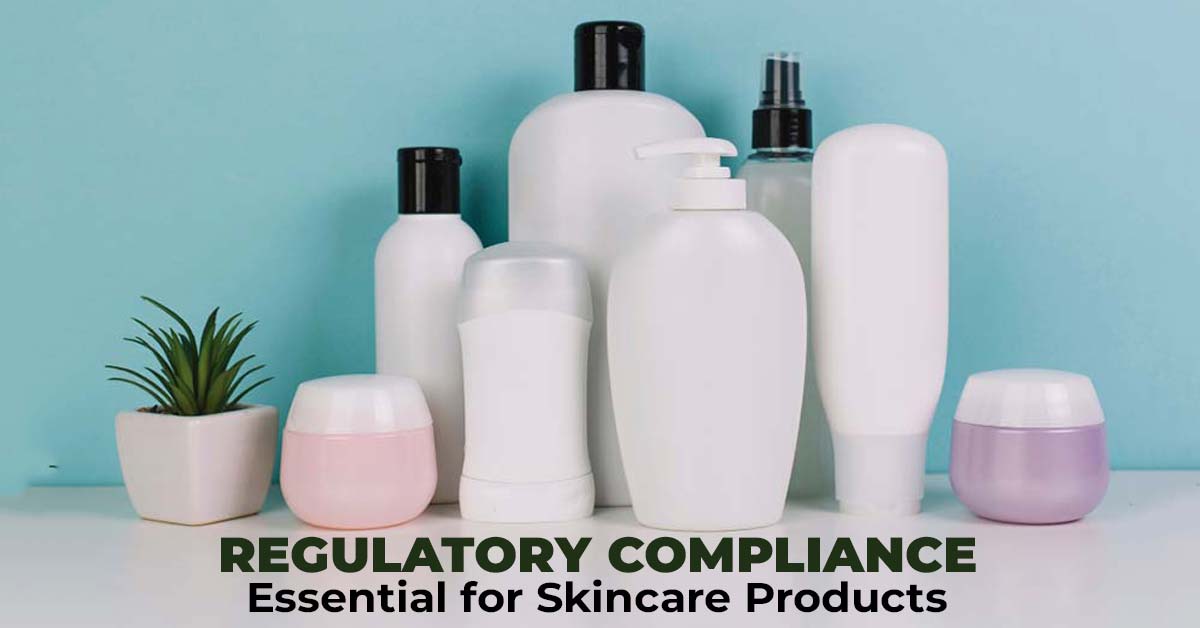
July 24, 2025
The way Malaysian consumers select skincare products in pharmacies has undergone a dramatic transformation in recent years. No longer just transactional spaces, pharmacies—especially in urban hubs like Kuala Lumpur and suburban areas like Seremban—have evolved into decision-making hubs where expert guidance plays a pivotal role. With an overwhelming variety of skincare SKUs lining the shelves, shoppers increasingly rely on trusted advisors to navigate their choices.
This shift is driven by a growing demand for personalized recommendations, particularly in health and beauty categories. Unlike mass-market retailers, pharmacies offer a strategic advantage: the presence of trained professionals who can bridge the gap between product awareness and purchase. For brands, partnering with a pharmacy distributor in Malaysia—whether a large-scale operator or an independent pharmacy distributor—unlocks access to in-store promoters, a proven method to influence buying decisions at the point of sale.
Consider this: A survey by a leading Malaysian market research firm found that 68% of pharmacy shoppers hesitate before purchasing skincare due to uncertainty about ingredients or suitability. This is where promoters step in—expert advisors who don’t just sell but educate. Their role is essential in a market where trust dictates purchasing behavior.

In the competitive retail pharmacy space, a pharmacy promoter isn’t just another salesperson. They are brand ambassadors with specialized training in skincare, capable of offering tailored advice based on individual concerns like dryness, acne, or aging. Unlike general staff, promoters focus on deep product knowledge, ensuring shoppers receive accurate, brand-specific guidance.
For example, a Caring Pharmacy branch in Johor Bahru reported a 25% increase in first-time trials for a hyaluronic acid serum after deploying a promoter. Why? Because shoppers trusted the promoter’s expertise—something digital ads or shelf displays couldn’t replicate. In Malaysia, where pharmacists are often stretched thin, promoters fill a critical gap, providing reliable skincare consultations that drive conversions.
Key reasons why promoters are indispensable:
✅ Personalized Consultations – They assess skin types and recommend suitable products.
✅ Trust Building – Shoppers rely on human interaction over generic marketing.
✅ Brand Advocacy – They communicate product benefits in a way that resonates locally.
Learn more : The Role of Employee Training in Effective Pharmacy Merchandising

Do Malaysians really need one-on-one skincare advice at pharmacies? Absolutely. Research shows that over 60% of consumers abandon skincare purchases due to confusion about formulations or usage. Promoters effectively address this by offering face-to-face demos, clarifying ingredient benefits, and even conducting quick skin assessments.
Unlike impulse-driven categories, skincare purchases are high-consideration decisions. Data from pharmacy wholesale distributors reveals that categories like anti-aging serums and acne treatments see 30% higher conversions when promoters are present. In Klang Valley outlets, brands using promoters noted a 40% boost in repeat purchases—proof that human interaction fosters loyalty.
A real-world example: A promoter at a Watsons in Penang used a visual hydration test to demonstrate a moisturizer’s efficacy. The result? A 50% lift in same-day sales. Such strategic engagements turn hesitant shoppers into confident buyers.
Learn more : Factors Influencing Consumers’ Online Shopping Behaviour: A Study of Shopee in Malaysia

Trials are the make-or-break phase in skincare marketing. Here, promoters excel by orchestrating sampling initiatives that turn curiosity into commitment. Their efficient handling of testers, sachets, and mini-demos ensures shoppers experience the product firsthand.
Best practices observed in Malaysian pharmacies:
✔ Deluxe Samples – Miniatures or week-long supplies to encourage trial.
✔ Interactive Demos – Hydration scans or pH tests to validate claims.
✔ Feedback Collection – Recording preferences for future targeting.
A leading distributor reported a 35% trial-to-purchase conversion rate when promoters managed sampling—far higher than passive displays. In Ipoh, a promoter-led sampling drive for a sun care range increased shelf turnover by 22% in a month.
Learn more : Pharmacy Merchandising for New Product Launches in Malaysia
Independent pharmacies thrive on community trust, and promoters amplify this by delivering culturally relevant education. Unlike chain stores, independents in places like Kota Kinabalu or Kuantan use promoters who speak local dialects, making consultations more relatable.
Case in point: A Melaka-based distributor saw a 20% rise in sales for a brightening serum after training promoters in Bahasa Melayu and Hokkien. Another Penang pharmacy network credited promoters for a 15% increase in customer retention—proof that hyper-local engagement works.
Beyond sales, promoters provide real-time insights on trends, helping brands refine campaigns. For independent distributors, this feedback loop is invaluable for staying competitive against larger chains.
Learn more : The Advantage of Independent Pharmacies

Navigating the skincare aisle in a Malaysian pharmacy can feel overwhelming—rows of products with bold claims, intricate ingredient lists, and packaging designed to catch the eye. For consumers, the sheer variety can lead to decision fatigue, while pharmacists may struggle to stay updated on every new launch. This is where trusted pharmacy promoters step in, acting as a strategic bridge between brands, retailers, and shoppers.
Unlike passive advertising, promoters engage directly with customers, offering expert guidance on formulations, application techniques, and ingredient benefits. Take niacinamide, for instance—a potent but often misunderstood component. A well-trained promoter doesn’t just state its presence in a product; they explain how it reduces inflammation or strengthens the skin barrier, turning a skeptical shopper into a confident buyer.
But their role extends beyond consumer education. In Malaysia, where pharmacies like Caring or Guardian handle hundreds of SKUs daily, promoters provide essential support to staff. Simplified product guides, live demos, and even mini-training sessions ensure pharmacists can recommend products accurately—without digging through dense manuals.
Real-World Impact in Malaysia
Consider a mid-tier pharmacy in Penang, where a promoter for a hydrating serum spent two weeks demonstrating the product’s use with moisture meters. The result? A 28% sales lift in that outlet alone, plus a noticeable drop in returns. Or in Johor Bahru, where a bilingual promoter (fluent in Bahasa Malaysia and Mandarin) helped a sensitive-skincare brand double its trial conversions by addressing cultural preferences for gentle, fragrance-free formulas.
Data-Driven Insights
Brands leveraging promoters report tangible benefits:
20–40% uplift in weekly sales for targeted products
15% reduction in product returns due to better-matched purchases
Higher satisfaction scores in post-purchase surveys, with 72% of customers citing promoter advice as “very helpful”
For pharmaceutical distributors in Malaysia, these outcomes aren’t accidental. They’re the result of tailored training, real-time feedback loops, and tools like digital dashboards that track customer queries. One reliable distributor even uses promoter-collected data to identify regional trends—like Sabah’s preference for travel-sized skincare—helping brands adjust inventory dynamically.
Learn more : Cross-Category Effects of Aisle and Display Placements: A Spatial Modeling Approach and Insights

Billboards fade. Influencer posts get buried. But a strategic promoter stationed where purchases happen? That’s a proven conversion engine. While digital ads might generate awareness, they rarely match the immediacy of a face-to-face interaction where doubts are resolved on the spot.
Why Promoters Outperform Traditional Channels
Higher Engagement: Unlike static ads, promoters adapt messaging to individual concerns—e.g., explaining why a ceramide cream suits mature skin better than a hyaluronic acid gel.
Lower Acquisition Costs: While influencer campaigns require hefty fees per post, promoter costs are fixed and measurable per sale.
Long-Term Loyalty: Customers who receive personalized advice are 34% more likely to repurchase, per a 2023 Nielsen study.
Malaysian Success Metrics
A Kuala Lumpur-based acne brand redirected 30% of its influencer budget to in-pharmacy promoters. Within three months:
45% sales increase in pilot stores
12% rise in customer retention
Pharmacists reported fewer complaints about product efficacy, as promoters had set clear expectations
Cost Efficiency
Yes, promoter programs require upfront investment—training, wages, and tools. But compare that to the fleeting impact of a billboard along the LDP Highway, seen by thousands but acted on by few. One efficient distributor shared how a promoter’s ability to upsell complementary products (like sunscreen with retinol) boosted average basket values by 18%, offsetting program costs within months.
Operational Nuances
Urban vs Rural: In KL’s fast-paced outlets, promoters focus on quick demos; in East Malaysia, they spend more time myth-busting (e.g., “Oily skin doesn’t need moisturizer”).
Tech Integration: Leading pharmacy wholesale distributors equip promoters with tablets to show before/after visuals or loyalty sign-ups—blending human touch with digital convenience.
Learn more : How to Maximize ROI from Pharmacy Merchandising Services in Malaysia | Marketing Return On Investment: A Comparative Study of Traditional and Modern Models

Case 1: Anti-Acne Brand in Urban Klang Valley
A local brand struggling with low shelf visibility partnered with a pharmacy distributor Malaysia to deploy promoters in 15 high-traffic stores. The strategy? Replace generic pamphlets with interactive hydration tests. Shoppers could see their skin’s moisture levels pre- and post-application—a tangible proof point. The result? A 45% conversion spike in two months, plus unsolicited Instagram tags from customers showcasing their progress.
Case 2: Sensitive Skin Line in Sabah
Language barriers and cultural trust gaps often hinder skincare sales in East Malaysia. A brand tackling this trained promoters in Bahasa Malaysia and Hakka dialects, emphasizing ingredient safety. They also conducted “patch test” weekends, where hesitant customers could try samples under supervision. Outcome: 33% trial conversion, with pharmacists later recommending the brand unprompted.
Case 3: Aging Care Range with Pharmacy Wholesale Distributors
A premium brand used promoters to gather feedback in 80+ outlets. Customers complained the packaging’s small font made it hard to read ingredient lists. The brand revamped the design within six months, leading to a 22% sales jump—proof that promoters aren’t just sales tools but effective research channels.
Patterns of Success
Education + Demonstration: Combining ingredient literacy with hands-on trials drives trust.
Localization: Promoters in Penang highlighted oil-control benefits; in cooler Cameron Highlands, they emphasized hydration.
Pharmacist Collaboration: Joint briefings ensured staff echoed promoter messaging, creating consistency.

Select a Distributor with Retail Expertise
Not all pharmaceutical distributors in Malaysia specialize in in-store activation. Prioritize partners with:
A track record of promoter placements in your category
Training modules covering compliance (e.g., no unapproved claims)
Coverage in your target regions—e.g., a distributor strong in Sarawak may lack Klang Valley networks
Co-Create Training Materials
Generic scripts won’t cut it. Work with distributors to develop:
Tailored FAQs addressing local myths (e.g., “Will this lighten my skin?”)
Visual aids like ingredient comparison charts
Role-playing scenarios for handling objections
Leverage Data for Agility
A reliable promoter program tracks:
Daily interactions (e.g., 60% of queries are about acne solutions)
Demographic trends (e.g., Gen Z shoppers prefer eco-friendly packaging)
Pharmacy feedback on which promotions drive foot traffic
Align with Pharmacy Priorities
Promoters should add value for pharmacists, not just brands. Examples:
Assisting during peak hours to reduce staff workload
Providing monthly category updates (e.g., “Trends in sensitive skincare”)
Offering bundled deals that improve pharmacy margins
A Note on Compliance
Malaysia’s National Pharmaceutical Regulatory Agency (NPRA) has strict guidelines on product claims. Ensure promoters are trained to avoid phrases like “cures eczema” and instead say “helps soothe irritation.” One brand faced a RM5,000 fine for unchecked promoter claims—a preventable risk.
The future of skincare retail in Malaysia isn’t just about shelf space—it’s about strategic human connections. In an era where consumers crave authenticity, promoters offer a trusted voice amid the noise. For brands, the ROI extends beyond sales: it’s about embedding your products into the local healthcare ecosystem, one informed recommendation at a time.